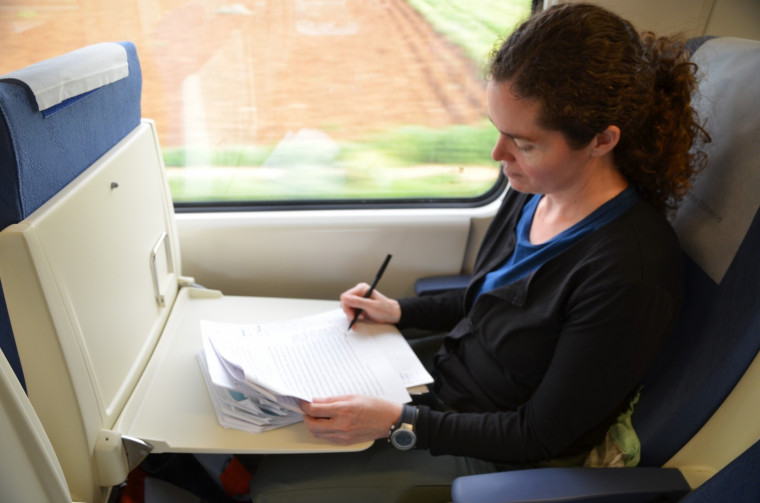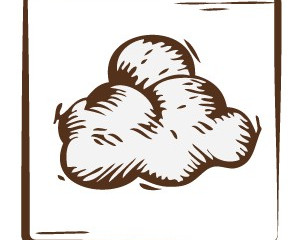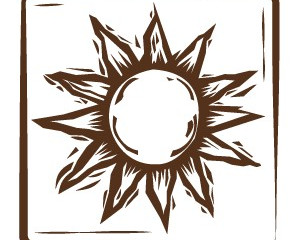Professor Melissa Powers wins 2012 Levenson Award for Excellence in Teaching
Open gallery

Melissa Powers, a professor in the Environmental Law program at Lewis and Clark, was awarded the Leo Levenson Award for Excellence in Teaching by this year’s graduating class. Professor Powers is an LC alum and spent five years as a clinical professor in the Pacific Environmental Advocacy Center at LC before moving into doctrinal teaching four years ago. Melissa teaches Energy Law, Climate Change, Torts, Clean Air Act and Renewable Energy Law.
What was your path to law school and becoming a law prof at LC? Do you have any recommendations for people who might want to follow in your footsteps?
I graduated from UC Berkeley with a degree in Environmental Science and then spent a year in Mexico teaching English and starting an organic garden. I decided to take a class in Boulder about Western Water Resources and became very interested in the legal and policy issues. I then took a job in Eugene working with teenagers as part of Northwest Youth Corps. We built trails, cleared invasive species and tramped around the forests. I got an up close look at the management of our national forests. One of the teen crews got so upset about some of the policy failures that they staged a “sit in” to protest logging practices. I managed to talk them into returning to work by giving them a pep talk about looking into the policies behind forest management. I realized that I was passionate about these issues and that I loved working with young people. So I decided to apply to law school and ultimately attended LC Law School. A couple of years after graduating, I joined PEAC as a clinical professor and was later hired as a tenure-track professor in the Environmental Law program.
My recommendations for people considering a career in teaching law are:
1) Get some practice experience. It’s important to understand the demands of a law practice and to be able to draw on that practical experience in the classroom.
2) Get some teaching experience. Teaching is rewarding and incredibly challenging. It is also good to understand how much time it takes to prepare for class and to teach.
3) Make sure you enjoy writing. It is important to write scholarly articles as a law professor. If you don’t really enjoy researching and writing you should think carefully about pursuing this profession.
4) Don’t give up too soon! I taught Energy Law my first year and it kicked my butt. The student evaluations were (deservedly) harsh. I have improved a lot since then!
What are some of your current projects, and what are some of your plans for the future?
I’m writing an article exploring how we can use energy policy to promote localized energy production, called “distributed generation”. I’m also working on broader policy recommendations for how Oregon can promote more renewable energy, especially when Boardman (Oregon’s last coal plant) closes. There is a big focus on natural gas right now because it is cheap, but it won’t be cheap forever so we need to incent renewables for the long run. I’m also in the process of updating our Climate Change text book, and I’m working on two projects related to grandfathering under the New Source Review provisions of the Clean Air Act and under the common law. These last projects basically challenge the practice of exempting existing facilities from new regulatory requirements and provide some recommendations for regulatory changes that would lessen the extent and impact of grandfathering.
I’m excited about a new seminar course I’ll be teaching next spring on Renewable Energy Law. I like the idea of having papers instead of exams for a change! The course will be structured so that for the last half of the course students will be writing papers on a relevant topic, sharing them with other students for peer editing and then presenting the papers at an in-class workshop. I’d also really like to create an International or Comparative Energy Law course. It’s important for US lawyers to understand how the rest of the world is addressing energy issues. My other pet project is to continue building the Green Energy Institute here at the law school. The idea is to create opportunities for our students to be involved in advising renewable energy producers and policy makers on how to navigate, and develop, the policy maze for green energy sources in the Pacific Northwest. I’d also love to spend some time looking at US Municipal Climate Action plans to understand how the cities have implemented and benefited from these planning tools.
All work and no play, makes a professor….dull. What do you like to do for fun outside the law campus?
I love to ride my bike and run – I’m training right now for an “endurance duathlon,” which is basically a half-Ironman without the swimming (or what my coach calls a “can’t-swimathon” – I’m a terrible swimmer) – and garden. I also love to travel and have been a visiting professor at several schools, including the University of Trento, Italy, the University of Navarra, Spain and the University of Maine. I also like to throw pots. My goal for the summer is to clean out my garage so that I can put a pottery wheel in there.
What did you think when you learned you were chosen by the graduates to receive the prestigious Levenson award?
I am so grateful to both the students and the faculty at LC. I’ve learned a lot from watching other fantastic professors through the years. Our students are engaged and insightful in the classroom. At the end of every term as I prepare the exams and review the students’ work, I am amazed at how much we have covered in the classroom and how deeply invested the students are in their education. I feel so lucky to be here at LC.

